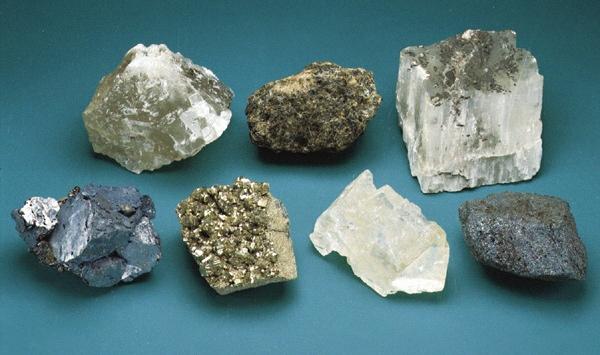The Minister of Solid Minerals Development, Dr Kayode Fayemi, has urged states and geo-political zones in the country to embrace economic cooperation among one another in exploring minerals deposits in their domains, as government refocuses on solid minerals in its economic diversification plan.
He, however, cautioned that government would pay particular attention to environmental and ecological issues, saying that government would not take anything short of the global best practices, in terms of environmental conservation from both local and foreign investors in the sector.
Speaking at the Obafemi Awolowo University, Ile-Ife, as Guest lecturer of the third annual Chief Ayoola Odeyemi Lecture on Friday, Fayemi said the government is focusing more on local market to in view of the growing downturn in global minerals commodity market.
He said while the expected economic prosperity could be in the long term, a great deal of wealth could be created and distributed through the solid minerals sector in the short and medium term, stressing that that is the immediate focus of the ministry under his watch.
Fayemi admitted that nearly all the states of the federation had one mineral deposit or the other and that some minerals deposits span some states and regions, hence the need for economic cooperation and regional integration.
The Minister in the lecture titled: “Harnessing Our National and Cultural Heritage for National Development”, said: “Often the occurrence of natural resource deposits cuts across state and even regional boundaries. This means that it is absolutely imperative for states to establish forums of regional cooperation in order to exploit the commercial potential of the resources in their domains.
“Take nearby Ilesha which has proven deposits of gold. Those deposits belong to a rich vein that cuts across states in the southwest and in the north-west zones. If the states with this vein are to fully benefit from their resources, they must create frameworks of regional economic cooperation and regional resource corridors.
“There is a clear case to be made that such joint ventures represent a win-win situation for all of us. If the age of crude oil was the age of zero-sum winner-takes-all thinking, this current age should be an age of cooperation and mutual progress.”, he said.
He said transformation could only come from a deep seated commitment to re-engaging at the regional level, urging that bureaucracies that have been duplicated could be stepped down.
“Only closer regional integration at the cost, revenue and upside level will work. Yes as a region, we in the Southwest can speak of our joint interest in working together and can point to concrete steps we have taken in this direction, but we certainly can do much more.”Fayemi said.
The Minister said communities, states and governments and investors must to some learn some lessons from the country’s experience with crude oil as the country moves in the direction of solid minerals and avoid repeating those past mistakes.
According to him “ Our national misadventures with crude oil and natural gas offer so many lessons on how not to go about extractive economic activities. Improper stewardship of our oil resources over the course of fifty years has left a terrible legacy of corruption, communal discontent and disillusionment, poverty and ecological degradation, resource micro-nationalism and anti-state violence.”
“ The tragic consequences of unregulated resource exploitation in the Niger Delta have been well documented. Gas flaring is generally discouraged and condemned by the international community as it contributes greatly to climate change. Nigeria contributes about 13 percent of the gas flared globally every year.
“Ironically, the most devastating effects of climate change will be felt by developing countries like Nigeria. The quantum of gas that is wasted could earn Nigeria more than $500 million annually.” He added.
Fayemi noted that lack of consideration for the environment remained one of the major factors in the oil rich Niger-Delta, leading to a variety of uninvestigated respiratory problems and other health hazards. He said efforts would be through relevant laws to ensure environmental safety in mining areas.
“Reckless extractive activities have despoiled a region with most of Africa’s mangroves and which has fed southern Nigeria’s interior with its wealth of fish, shellfish, wildlife and crops.
“Against the background of this tragedy, ecological justice is one of the major planks of our approach to the development of the solid minerals sector.
“We will ensure that investors comply with global best practices in resource extraction by integrating all relevant protocols on environmental conservation in the conduct of mining and all related business.
“This approach is informed by our belief that the environment itself is a resource and has to be safeguarded even as we unearth its more obvious treasures. Our goal is to provide a better deal for the local communities where these minerals are located, ensuring communal buy-in and benefit.
“For the new resource economy to benefit our people, we intend to take an activist posture towards issues of developing local content and ensuring a transfer of skills and technology that will be to our nation’s advantage in the medium and long term.
“While we are committed to maintaining a liberal business environment, we are also mindful that the new resource economy results in a win-win situation for all stakeholders. This is why we intend to see to it that host communities are directly and positively impacted by the activities that will be undertaken in their domains.” He added.

